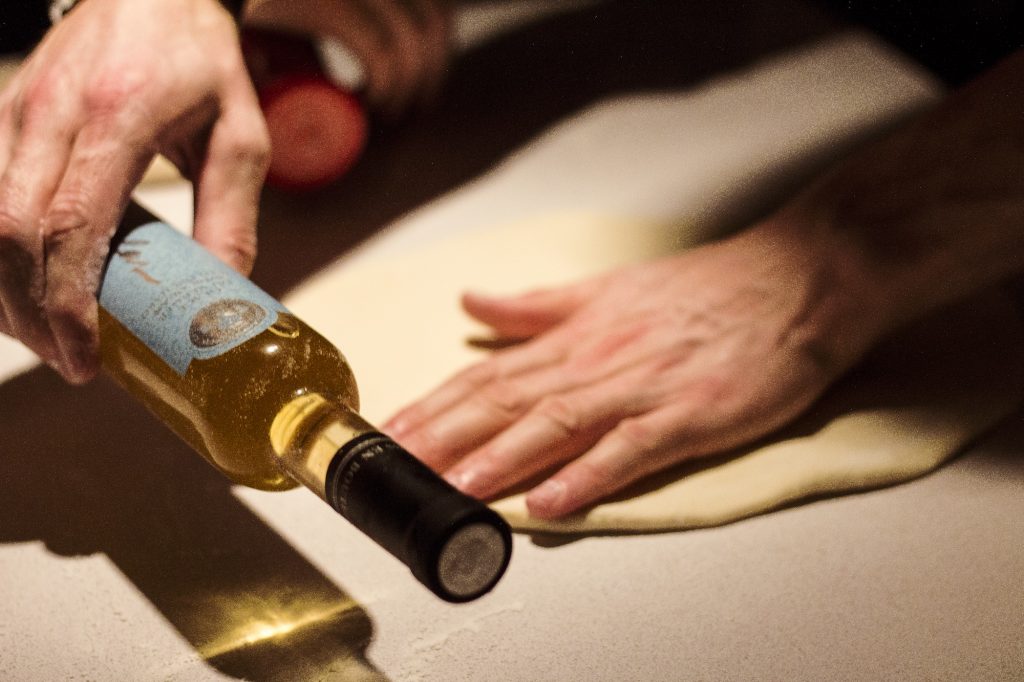First gay Muslim cooking night brings LGBTQ+ community together
By Daanish Rehman
The aroma of Lebanese cooking is coming from an apartment at the end of the corridor. Amid the din of blaring music, Ottawa’s first ever gay Muslim cooking night is unfolding.
The Gay Muslims United event was held Jan. 27 in collaboration with MAX Ottawa, an organization that offers a variety of services for the LGBTQ+ community. The objective is to work with LGBTQ+ people on “their mental health, their physical health, their social health, their sexual health, and their spiritual health,” said Matthew Harding, community engagement coordinator at MAX Ottawa.
Gay Muslims United is a new group that aims to create a communal space for gay Muslims around the world. Since starting its Facebook page on Jan. 1, the group has received about 7,000 likes.
“Every time (Muslims) get together, we get together for meals,” said GMU founder Yusuf Celik. The event was hosted at the home of one of Celik’s friends.
Most of the dozen participants made dishes from their home countries, ranging from Iran and Syria to Russia. In the background, the sounds of laughter could be heard above upbeat Turkish music.
The organization hopes to become a meeting place for gay Muslims in the Ottawa area, to educate the LGBTQ+ community on the many inclusive aspects of the Muslim faith. In the future, there are plans to introduce straight Muslims to the LGBTQ+ community.
Celik joked that his desire to introduce non-LGBTQ+ Muslims to this community is to “show them that, first, we are better at cooking than them . . . second, we can build peace, unlike them.”
“Most of the straight people in these countries are in conflict, but we just want to show to people that we as gay people can build peace,” Celik said. He said that in many countries, homophobia is cultural, and people would be more likely to change if they met LGBTQ+ Muslims in person.
Celik said he needed to be a part of that change, explaining that he “got tired of reading the news that gay people are getting killed. I believe unless someone does it, all other people are still going to be living in fear.”
This isn’t just talk for Celik. He has never come out to his relatives back home but said he wanted to have his name and picture published here in Canada to “encourage other gay Muslims to come out of closet.”
Celik puts LGBTQ+ persecution into perspective when he says: “Canada is a perfect, perfect place to be part of that change. Why should I be afraid? If I am afraid in Canada, what must other people think of the people living in Iran, people living in Syria, Iraq, Afghanistan, Pakistan, Tunisia, Algeria?”
El-Farouk Khaki, Imam of the LGBTQ+ inclusive El-Tawhid Unity Mosque in Toronto, said the importance of such events cannot be overstated. Khaki, who is also an immigration lawyer and founder of Salaam, a support group for gay Muslims, said, “It’s really important to have a diversity of spaces where people can have their different needs addressed.”
One participant – who asked not to be named – said the gathering was an important networking event for newcomers, especially since many people “come from places where homosexuality is denied, where people pretend it doesn’t exist. It’s nice to know there are people like you.”
Khaki, while not affiliated with the event, gave it his full support. “For me, it’s all about breaking down the notion of any space or any community or any group somehow being monolithic,” he said.
Khaki was echoed by Harding. “I think a lot of spaces are already dominated and owned by white gay men, and I think it’s very important for white gay men to acknowledge when their presence isn’t required, to offer spaces for other communities to connect and create space for themselves.”
Celik added that even though many countries are in conflict, at this event attendees were joyfully cooking and eating together – creating a community beyond their nations’ borders. Celik said the collective persecution of LGBTQ+ people in these countries has encouraged him to “focus on what unites us instead of what divides us.”

